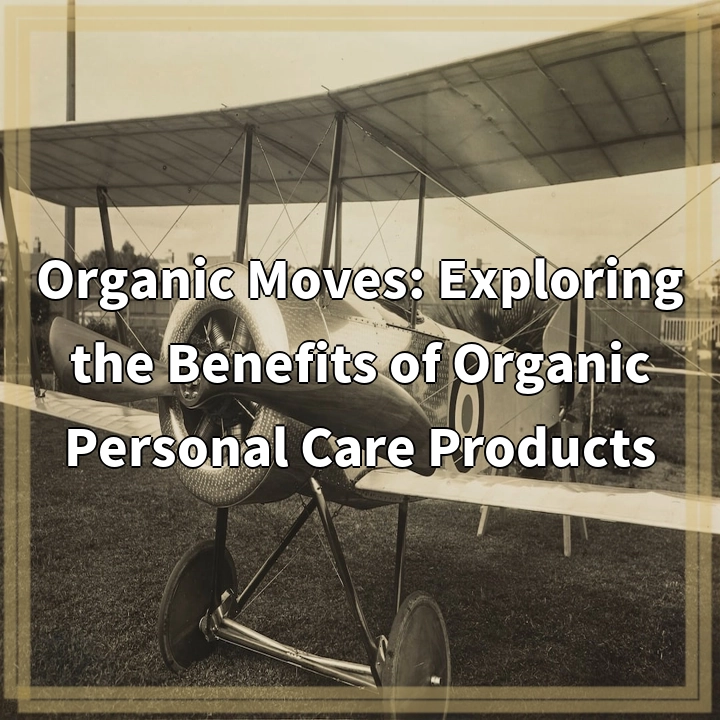
What it is:
Organic Moves: Exploring the Benefits of Organic Personal Care Products
Organic Moves is a blog post that aims to provide insights into the world of organic personal care products. In this blog, we will delve into the definition, manufacturing practices, and benefits of organic personal care products.
Real-World Problems:
While organic personal care products offer numerous benefits, they are not without their challenges. It’s important to recognize and address the real-world problems associated with these products to make informed decisions.
1. Lack of Regulation and Misleading Claims
One of the major concerns surrounding organic personal care products is the lack of consistent regulations. Unlike organic food, there is no official governing body defining what “organic” means in the personal care industry. As a result, some products may claim to be organic without undergoing proper certification or meeting established standards.
2. Greenwashing
Related to the previous point, greenwashing is a common problem in the personal care industry. Some companies may use deceptive marketing tactics to lead consumers into believing that their products are organic or environmentally friendly when, in fact, they are not. This can make it challenging for consumers to differentiate between genuinely organic products and those that are only using the “green” label as a marketing ploy.
3. Limited Accessibility and Higher Price Points
Another obstacle associated with organic personal care products is their limited accessibility and often higher price points. These products may not be as readily available as conventional alternatives, making it difficult for consumers, especially those in remote areas, to access them easily. Additionally, their production and sourcing practices, such as using premium organic ingredients, can contribute to higher price tags.
4. Product Efficacy and Performance
Some critics argue that organic personal care products may not always be as effective or perform as well as their conventional counterparts. While this is a subjective issue and dependent on individual preferences, it is essential to acknowledge that achieving desired outcomes, such as skincare or haircare results, may vary from person to person when using organic products.
By understanding and acknowledging these real-world problems, consumers can make informed choices when purchasing organic personal care products. It is crucial to research brands, read ingredient labels, and look for third-party certifications to ensure the authenticity and quality of the products being purchased.

Solutions to Real-World Problems
1. Seek Certifications and Reliable Standards
When purchasing organic personal care products, look for reliable certifications such as USDA Organic, ECOCERT, or COSMOS to ensure that the product meets specific organic standards. These certifications provide reassurance and confidence in the authenticity of the product’s organic claims.
2. Educate Yourself and Read Labels
Take the time to educate yourself about ingredients commonly used in personal care products and research the brands you are considering. Read and understand the ingredient labels to identify potential harmful or synthetic ingredients, and opt for products that prioritize natural and organic components.
3. Look for Transparency and Open Communication
Support brands that prioritize transparency and openly communicate their sourcing and manufacturing practices. Look for brands that share information about ingredient sourcing, manufacturing processes, and their commitment to sustainability and the environment.
4. Share and Support Ethical Brands
Share your experiences and support ethical brands that genuinely prioritize organic and environmentally friendly practices. By spreading the word about trustworthy brands, you can encourage others to make informed choices and contribute to a more sustainable personal care industry.
By implementing these solutions, consumers can navigate the world of organic personal care products with more confidence, ensuring that they make choices that align with their values and benefit both their well-being and the environment.















